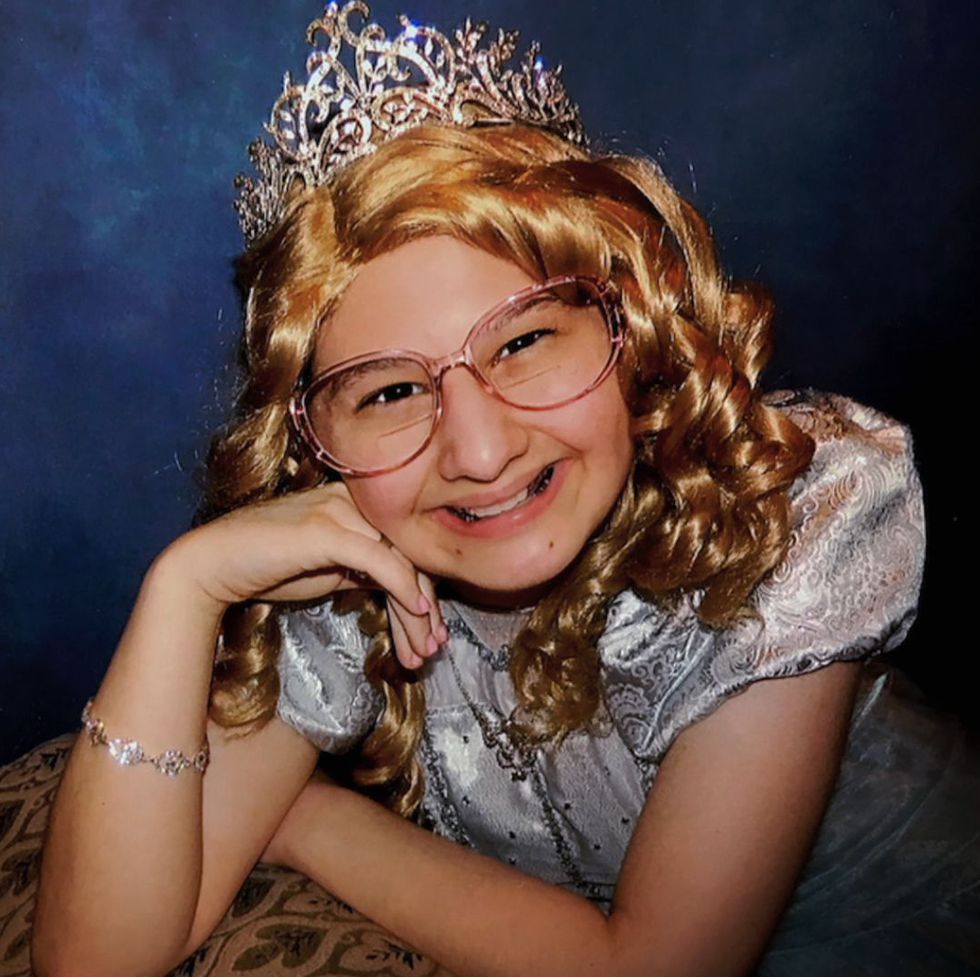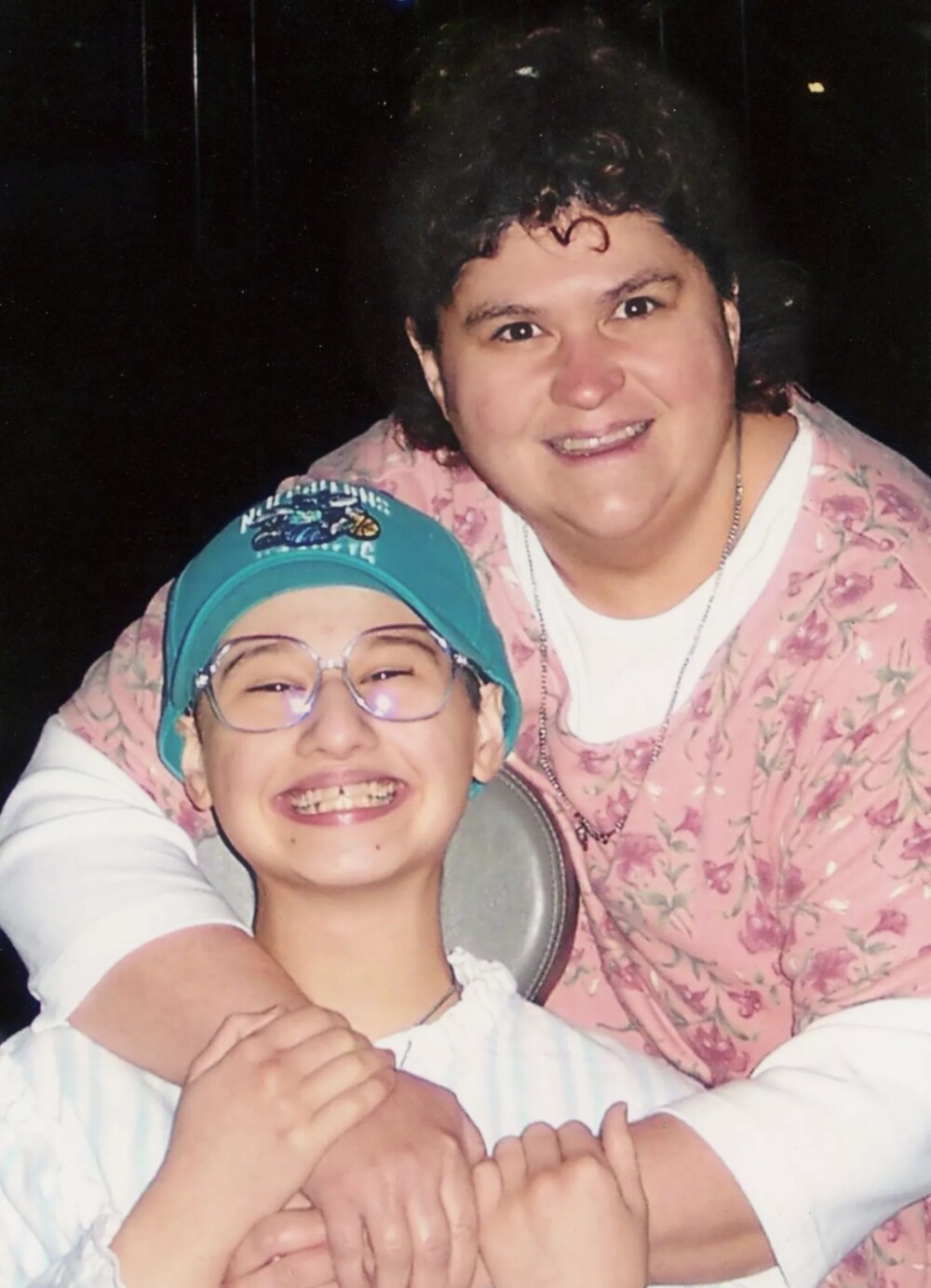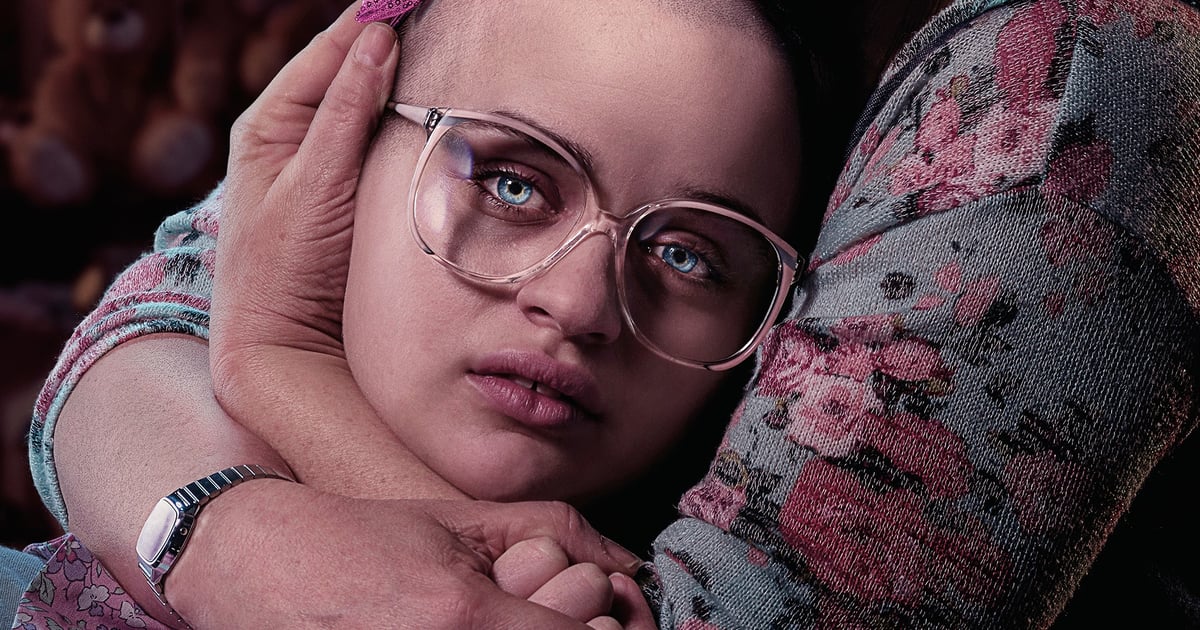Gypsy Rose Blanchard - A New Beginning
The story of Gypsy Rose Blanchard is one that has, in a way, truly captured the attention of many people, offering a glimpse into a very unusual set of circumstances and a life lived under incredible pressure. For years, her experience was something hidden away, a private pain that eventually became a public conversation. Now, she is, you know, stepping into a completely different phase of her life, marking a significant turn after years of being in the spotlight for reasons she never asked for.
Her release from prison, and then the completion of her parole, signals a fresh start, a chance to really build something new. It's almost as if she's finally getting to write her own story, rather than living out a script someone else created for her. This new chapter is, in some respects, about finding her own voice and making her own choices, something she was denied for so very long.
People are, naturally, quite curious about what this next part of her life looks like. From adjusting to everyday things that many of us take for granted, to finding her own path and even, apparently, starting a family, Gypsy Rose is navigating a very different kind of world. It’s a story that continues to unfold, showing us, you know, the complexities of human experience and the possibility of change.
Table of Contents
- Who is Gypsy Rose Blanchard, really?
- Where is Gypsy Rose Blanchard today?
- Understanding Gypsy Rose's Experience
Who is Gypsy Rose Blanchard, really?
Gypsy Rose Blanchard is, basically, a person whose childhood was marked by a very unusual and difficult situation. She became known to the public because of her involvement in her mother's passing, a situation that brought to light years of hidden mistreatment. Her story, you know, brought a lot of conversations about a specific kind of harm that can happen within families, something called Munchausen by proxy.
For a long time, Gypsy Rose lived a life that was, in a way, completely controlled by her mother, Dee Dee Blanchard. This control was so absolute that it kept Gypsy Rose from experiencing a typical childhood. Her mother, it seems, made her believe she had many serious illnesses, which was not actually true. This meant Gypsy Rose spent much of her young life in and out of medical settings, receiving care she didn't need, and living under strict rules that kept her isolated from the outside world. This kind of existence, you know, was incredibly limiting, and it shaped almost every part of who she was.
The situation eventually reached a breaking point, leading to the events that put Gypsy Rose in prison. Since then, she has been, sort of, working to understand her past and build a life for herself. Her journey has been a public one, with many people watching to see how she would adapt to a world she barely knew. It's a story of survival and, arguably, a search for normalcy after an upbringing that was anything but normal.
Personal Details - Gypsy Rose
| Full Name | Gypsy Rose Blanchard |
| Age (as of 2025) | 33 years old |
| Birthplace | Louisiana, USA |
| Mother's Name | Clauddine "Dee Dee" Blanchard |
| Date of Prison Release | December 28, 2023 |
| Parole Completion Date | June 24, 2025 |
| Time Served in Prison | Eight years |
| Current Residence | Louisiana |
| Advocacy Work | Against child mistreatment and Munchausen by proxy |
What was Gypsy Rose's early life like?
Gypsy Rose Blanchard's early years were, quite frankly, very different from what most children experience. Her life was, in a way, really small, confined to the wishes and deceptions of her mother, Dee Dee. She was a person who, basically, lived with a severe form of child abuse known as Munchausen syndrome by proxy. This is a situation where a caregiver, in this case, her mother, makes up or causes illnesses in the person they are caring for, often a child, to gain attention or sympathy.
Dee Dee, it seems, was a person who controlled Gypsy Rose in a really harmful way. She convinced Gypsy Rose, and everyone around them, that Gypsy had a variety of serious health problems, including leukemia, muscular dystrophy, and even required a feeding tube and wheelchair. These conditions, of course, were not actually present. Gypsy Rose was, you know, forced to pretend to be sick, undergo countless medical tests, and even have unnecessary procedures. This meant her childhood was spent in hospitals and doctors' offices, rather than, say, playing with friends or going to school in a regular way.
The constant deception and physical mistreatment created a life for Gypsy Rose that was, basically, isolated and without any real freedom. She was kept from interacting with others outside of her mother's watchful eye, and her entire existence revolved around maintaining the false narrative of her illnesses. This kind of upbringing, you know, left her with a very limited understanding of the outside world and a deep desire to escape the situation she was trapped in. It was a life lived under a cloud of falsehoods, with Gypsy Rose as the central, unwitting performer.
How did Gypsy Rose's story unfold?
The story of Gypsy Rose Blanchard, you know, reached a critical point when the years of mistreatment became too much to bear. Her life, which had been so tightly controlled, eventually led her to seek a way out of her mother's grip. This desire for freedom, in a way, pushed her towards a very desperate measure. She, apparently, became involved in a plan to end her mother's life, a decision that stemmed from years of suffering and a perceived lack of other options.
The events that followed were, basically, shocking to the public. Dee Dee Blanchard was found dead, and the investigation quickly pointed to Gypsy Rose and her then-boyfriend. What emerged during the legal proceedings was, you know, a truly complex picture of abuse and desperation. The trial brought to light the extent of Dee Dee's deceptive behavior and the profound impact it had on Gypsy Rose. It was, in some respects, a case that challenged conventional ideas of victim and perpetrator, as the jury had to consider the extreme circumstances that led to the crime.
Ultimately, Gypsy Rose Blanchard accepted a plea deal for her involvement in her mother's passing. She was, you know, sentenced to ten years in prison, serving eight of those years before being granted an early release. Her time in prison was, in a way, a period of reflection and, arguably, growth, as she began to process the trauma of her past and prepare for a life outside the walls that had confined her for so long, first by her mother, and then by the legal system. This part of her journey was, basically, about facing the consequences of her actions while also, perhaps, finding some peace.
Where is Gypsy Rose Blanchard today?
Gypsy Rose Blanchard is, as a matter of fact, starting a completely new chapter after finishing up her time under supervision, nearly ten years after her mother's death. She has, you know, been very open about this fresh start, even sharing her thoughts on social media. After being let go from a prison in Missouri back on December 28, 2023, Gypsy Rose made her way back to Louisiana, which is where she grew up. This move back home, in a way, signals a desire to reconnect with her roots and build a stable life.
Her life now is, basically, very different from the one she knew before. She is, apparently, experiencing many firsts, like making her own decisions and, you know, living without the constant control she endured for so long. She has been, kind of, sharing glimpses of her new life, which includes moments of joy and, of course, the usual challenges that come with adjusting to a completely different routine. It’s a period of learning and adapting, really, as she navigates the everyday world as an adult with her own freedom.
Beyond her personal adjustments, Gypsy Rose has also been, you know, speaking out about her experiences. She is, in some respects, using her story to help others and to raise awareness about the kind of mistreatment she went through. This step into advocacy is, basically, a significant part of her new life, allowing her to turn her past pain into something that could, perhaps, prevent similar situations for other children. Her journey continues to be watched by many, as she forges a path that is, very much, her own.
What does freedom mean for Gypsy Rose?
For Gypsy Rose, freedom means, you know, a chance to truly make her own choices for the first time in her life. It means being able to decide what she eats, where she goes, and who she spends her time with, simple things that were denied to her for so long. After being released from prison, she went back to Louisiana, and she has been, basically, embracing this newfound ability to direct her own life. This includes, apparently, finding personal happiness and building connections that are, in a way, truly her own.
One of the most significant aspects of her freedom is, arguably, the opportunity to have a personal life. She has, you know, spoken about her relationships, including her husband, and the possibility of starting her own family. This is a very different path from the one her mother forced upon her, which involved faking illnesses to keep her isolated and dependent. The ability to form genuine connections and experience love is, in some respects, a huge part of her healing process and her journey to a more typical existence.
Freedom also means, you know, having a voice. Gypsy Rose is, basically, now able to speak openly about her past, not just the abuse she endured, but also her role in the events that led to her mother's death. This public speaking is, in a way, part of her healing, allowing her to control her own narrative. It’s a very powerful step for someone who had their story told for them, and often distorted, for so many years. Her freedom is, therefore, not just about physical liberty, but also about mental and emotional liberation.
What's next for Gypsy Rose?
As Gypsy Rose moves forward, you know, she is looking at a future that is, in a way, completely open-ended. Having finished her parole on June 24, 2025, she is now, essentially, fully free from the legal system's oversight. This marks a truly important milestone, allowing her to pursue her life goals without the restrictions that come with supervision. What's next for her is, basically, about building on the foundation she's started since her release.
She has, apparently, expressed a desire to continue her advocacy work. This means, you know, using her platform to raise awareness about child mistreatment and the specific dangers of Munchausen by proxy. Her personal experience gives her a very unique perspective, and she seems determined to use it to help prevent other children from going through similar situations. This commitment to helping others is, in some respects, a way for her to find meaning and purpose in her own difficult past.
Beyond her public efforts, Gypsy Rose is, you know, also focused on her private life. This includes, perhaps, strengthening her family connections and simply living a quiet, normal existence. The challenges of adjusting to a world she barely knew are still present, but she is, in a way, facing them head-on. Her journey is, basically, a continuous process of learning, growing, and finding her place in a world that is, very much, different from the one she was forced to inhabit for so long.
Understanding Gypsy Rose's Experience
To really understand Gypsy Rose Blanchard's story, you know, it's important to look at the very unusual circumstances that shaped her life. Her experience is, in a way, a stark reminder of how deeply harmful a specific type of child mistreatment can be, especially when it goes undetected for many years. The public became aware of her story only after a tragic event, which then, basically, revealed the hidden abuse she had endured since she was a very young child.
Her situation brought a lot of attention to Munchausen syndrome by proxy, a condition where a person fabricates or induces illness in someone else, usually a child, for their own psychological needs. In Gypsy Rose's case, her mother, Dee Dee, was the perpetrator, convincing doctors and the community that Gypsy Rose was gravely ill. This meant Gypsy Rose spent her entire childhood, you know, undergoing unnecessary medical procedures and living a life confined by false diagnoses. This kind of existence was, in some respects, a prison long before she ever entered a correctional facility.
Her story, therefore, is not just about a crime, but about the profound impact of long-term mistreatment and the extreme measures a person might take when pushed to their limits. It has, basically, opened up conversations about recognizing signs of abuse, the role of medical professionals, and the complex psychological factors at play in such cases. Gypsy Rose's experience is, in a way, a very difficult but important case study in human resilience and the search for freedom from deep-seated trauma.
Why did Gypsy Rose go to prison?
Gypsy Rose Blanchard went to prison because she was involved in the passing of her mother, Clauddine "Dee Dee" Blanchard. This event, you know, came after years of her mother fabricating illnesses and subjecting Gypsy Rose to unnecessary medical procedures and a life of extreme control. Gypsy Rose, in a way, felt trapped and saw no other way out of her situation. She, basically, conspired with her then-boyfriend to have her mother killed.
The legal process that followed was, in some respects, very complex. While Gypsy Rose was a person who had been a victim of severe and prolonged mistreatment, her actions were still considered a crime. She eventually pleaded guilty to second-degree murder. This plea, you know, meant she accepted responsibility for her part in the events, even given the very unusual and difficult circumstances she had lived under for so long. The court recognized the abuse she suffered, which influenced her sentence.
She served eight years of a ten-year sentence in a Missouri prison. Her time there was, basically, a period of confinement, but also, arguably, a time for her to begin processing her past and preparing for a life where she would finally be free from her mother's harmful control. Her release in December 2023 marked the end of that chapter and the beginning of her new life outside of prison walls, a life she had, you know, longed for for so very long.
How is Gypsy Rose helping others?
Since her release, Gypsy Rose Blanchard has been, you know, taking steps to use her story to help other people. She is, in a way, becoming a voice for those who might be experiencing similar kinds of hidden mistreatment. Her personal experience with Munchausen syndrome by proxy gives her a very unique perspective, and she seems determined to share what she learned to prevent others from suffering in the same way.
She is, apparently, engaging in advocacy work focused on child mistreatment and raising awareness about Munchausen by proxy. This involves, basically, speaking out about the signs of such abuse and the importance of recognizing when a child might be in danger. Her willingness to share her own very painful past is, in some respects, a brave act, as it opens up a conversation about a topic that can be difficult for many to discuss. It's a way for her to turn her own suffering into something positive and helpful for others.
Her efforts are, you know, contributing to a broader understanding of this specific type of harm. By telling her story, she is, in a way, shedding light on the complexities of child mistreatment and the long-lasting effects it can have. This commitment to helping others is, basically, a significant part of her new chapter, allowing her to find purpose and meaning in a life that was once defined by deception and confinement. She is, therefore, becoming a person who stands up for vulnerable children.
The story of Gypsy Rose Blanchard is, in some respects, a powerful and very complex narrative of survival, freedom, and the ongoing process of healing. From a childhood marked by profound and hidden mistreatment under her mother's control, to the drastic events that led to her imprisonment, and now, to her life as a free person, her journey has been, you know, a public one, watched by many. She is, basically, stepping into a new chapter, embracing her independence, forming new relationships, and using her voice to advocate against child mistreatment and Munchausen by proxy. Her experience offers a unique perspective on the long-term effects of abuse and the human capacity for change and growth, even after facing incredibly difficult circumstances.

¿Quién es Gypsy Rose Blanchard? La mujer que conmocionó al mundo y hoy

Gypsy Rose: documentales y películas sobre este macabro caso - BluRadio

Who Plays Gypsy Rose in The Act on Hulu? | POPSUGAR Entertainment